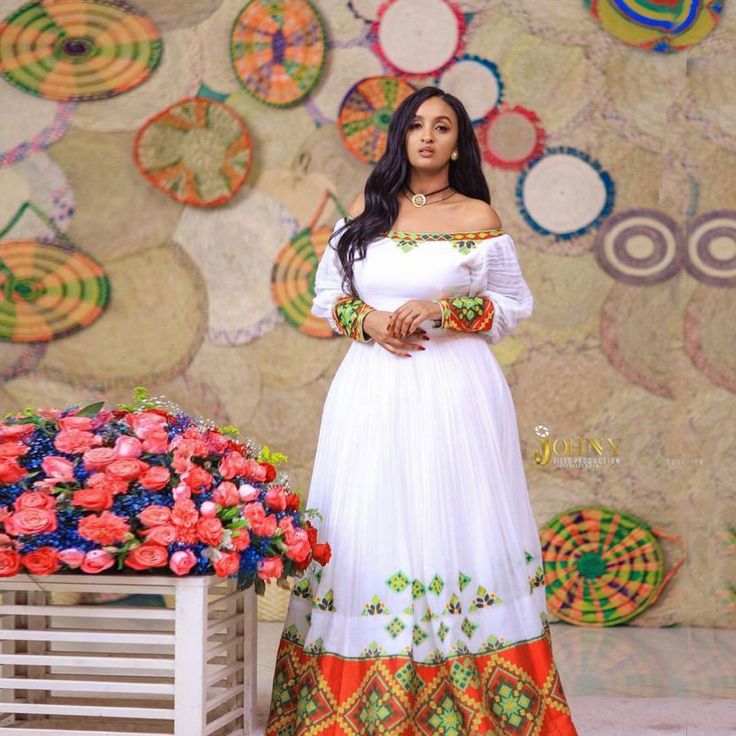Ethiopian culture is rich and diverse, reflected vividly in its traditional attire. Ethiopian dress fashion is not just about clothing; it’s a symbol of heritage, identity, and pride. From the intricate patterns to the vibrant colors, Ethiopian garments tell stories of tradition and history. In this article, we delve into the captivating world of Ethiopian dress fashion, exploring its significance, evolution, and contemporary trends.
Historical Roots
Ethiopian traditional clothing has deep historical roots, dating back centuries. The country’s diverse ethnic groups each have their distinctive styles, influenced by factors such as climate, geography, and cultural heritage.
Symbolism and Significance
Every element of Ethiopian dress carries symbolic significance. Colors, patterns, and accessories often convey messages about identity, status, and even religious beliefs. For instance, the vibrant colors of Ethiopian attire symbolize joy, celebration, and optimism, reflecting the country’s colorful culture and traditions.
Evolution of Ethiopian Dress
Over time, Ethiopian dress fashion has evolved, influenced by various factors such as globalization, modernization, and changing social norms. While traditional attire remains deeply cherished, contemporary fashion designers are blending traditional elements with modern styles to create unique and innovative designs that appeal to younger generations both in Ethiopia and abroad.
Influence on Global Fashion
Ethiopian dress fashion has gained recognition on the global stage, inspiring fashion designers and enthusiasts worldwide. The bold colors, intricate patterns, and exquisite craftsmanship of Ethiopian garments have made their way into international runways, fashion magazines, and celebrity wardrobes, further amplifying Ethiopia’s cultural presence on the global fashion scene.
Challenges and Revival
Despite its rich cultural heritage, Ethiopian dress fashion faces challenges such as the decline of traditional weaving techniques, the dominance of Western clothing, and the rise of fast fashion. However, efforts are underway to revive and promote traditional Ethiopian attire through initiatives such as cultural festivals, artisan cooperatives, and educational programs aimed at preserving traditional craftsmanship and empowering local artisans.
Contemporary Trends
Contemporary Ethiopian dress fashion embraces both tradition and innovation, catering to diverse tastes and preferences. While traditional garments like the Kemis and Netela remain popular for cultural events and ceremonies, modern interpretations featuring sleek silhouettes, bold prints, and fusion designs are gaining traction among younger generations and urban professionals.
Sustainable Fashion
In recent years, there has been a growing emphasis on sustainable fashion practices in Ethiopia, with a focus on ethically sourced materials, eco-friendly production methods, and fair trade principles.
Celebrating Diversity
Ethiopian dress fashion celebrates the country’s cultural diversity, with each region and ethnic group contributing its unique styles and traditions. From the intricate beadwork of the Afar people to the elaborate headgear of the Oromo, Ethiopian attire reflects the vibrant tapestry of the nation’s cultural mosaic, fostering unity and pride among its people.
The Future of Ethiopian Dress Fashion
As Ethiopia continues to navigate the complexities of globalization and modernization, its traditional attire remains a powerful symbol of cultural identity and resilience. While embracing innovation and contemporary trends, it’s essential to safeguard the authenticity and integrity of Ethiopian dress fashion, ensuring that future generations can continue to cherish and celebrate this rich cultural heritage.
conclusion
Ethiopian dress fashion is not just about clothing; it’s a living expression of culture, history, and identity. As we look to the future, let us cherish and preserve this cherished heritage, celebrating the diversity and richness of Ethiopian culture through its timeless fashion traditions.
Top of Form


